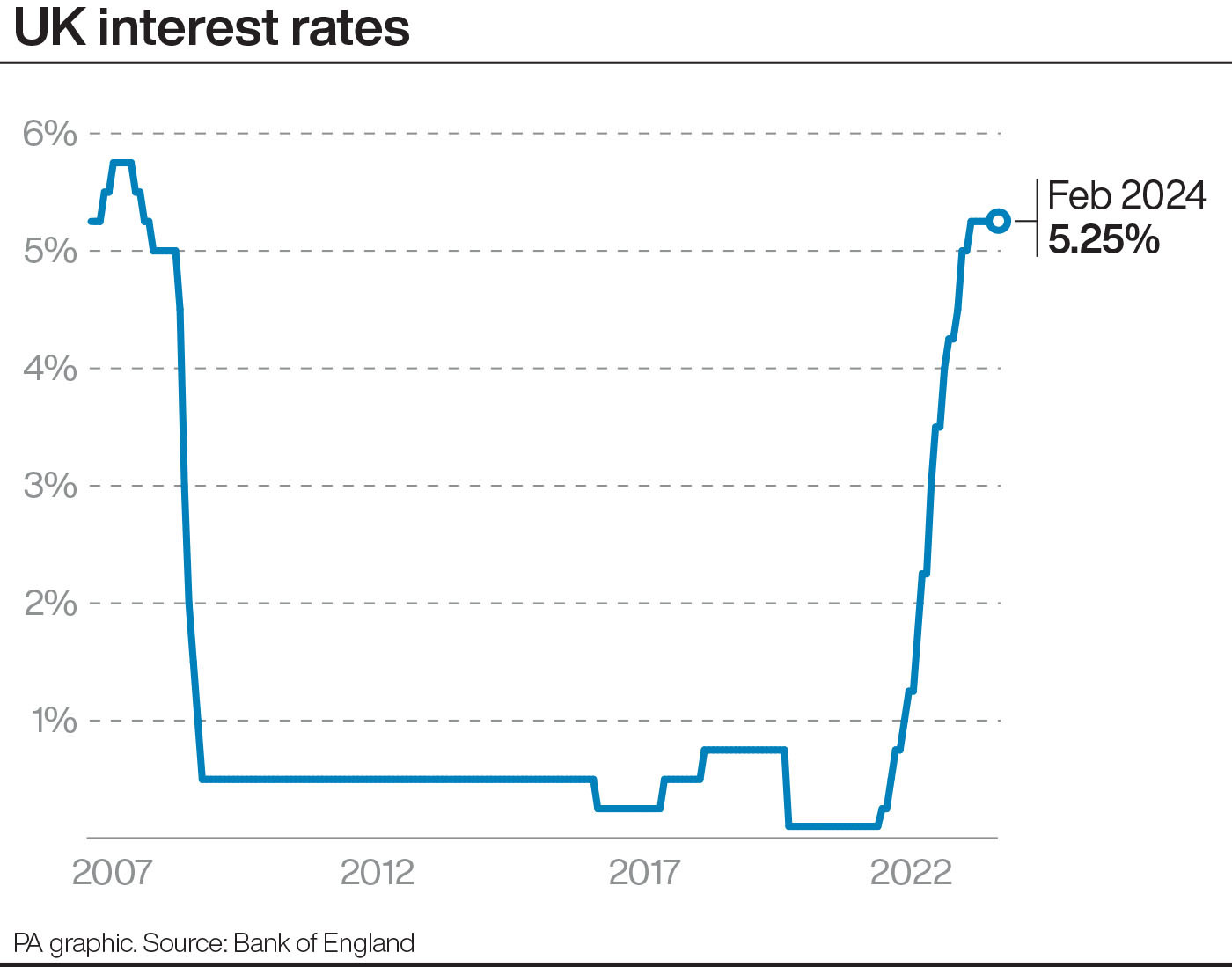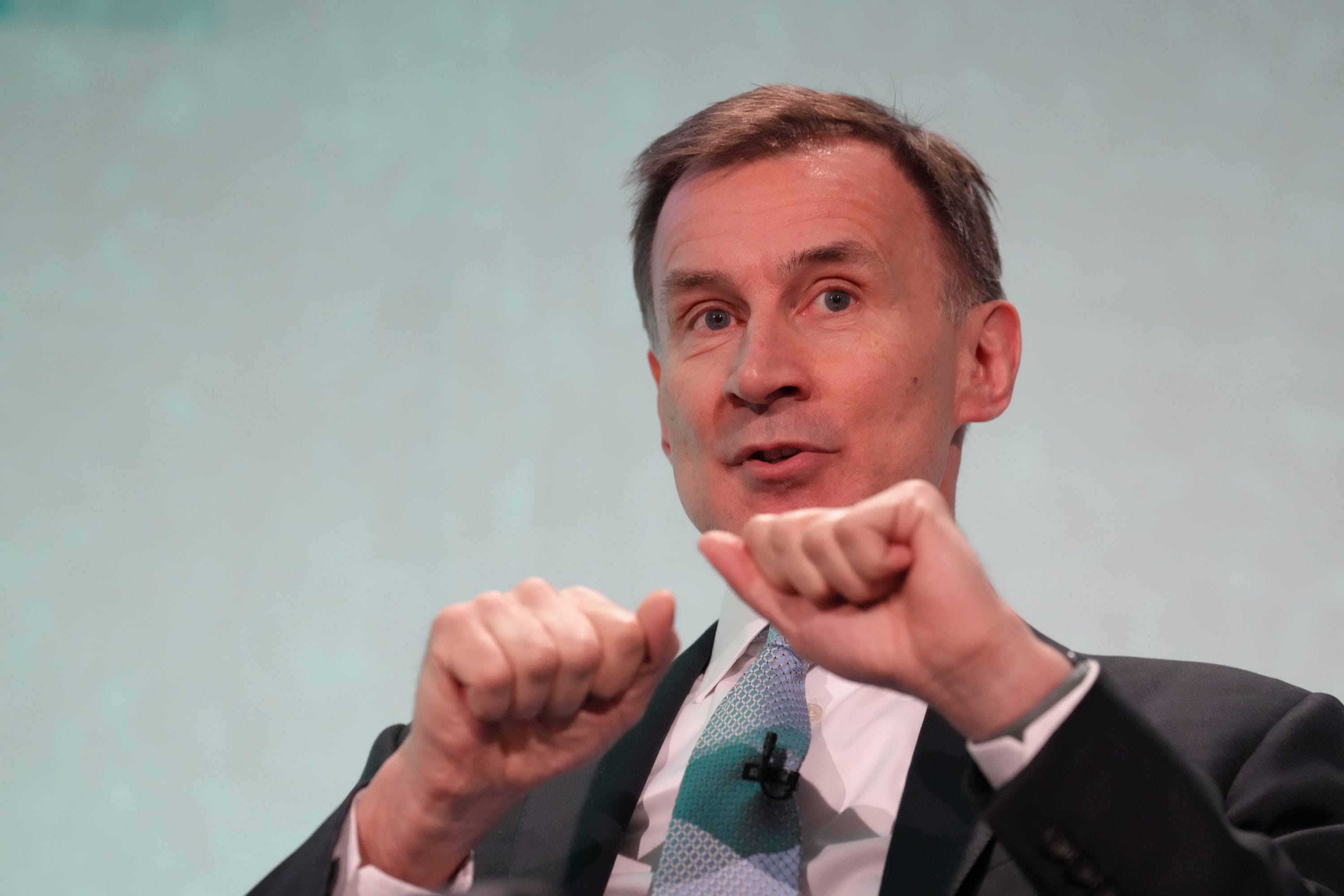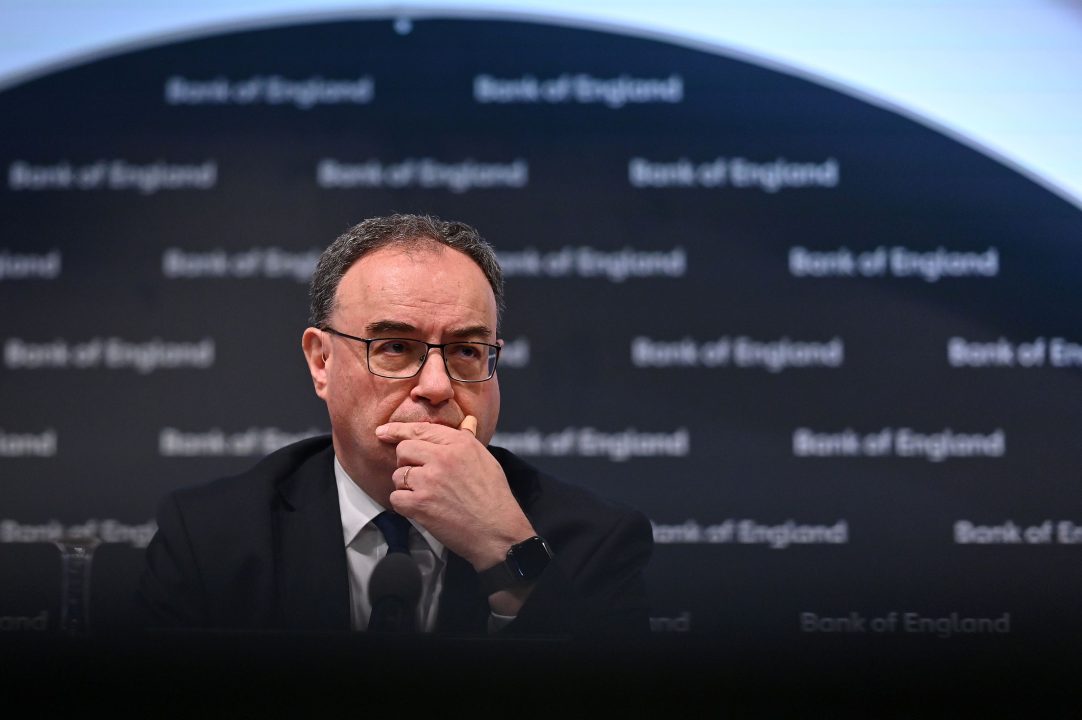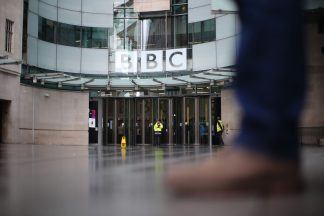The Bank of England has signalled it could start thinking about cutting borrowing costs this year as it kept interest rates at 5.25% – but stressed the job of reining in inflation is not done.
Policymakers at the Bank voted to keep interest rates on hold for the fourth time in a row but said they were keeping “under review” how long they should be maintained at the current level.
It marks a subtle but important shift in the language, which has previously hinted that rates are more likely to rise than fall in the future.
One Bank policymaker, Swati Dhingra, voted to reduce rates to 5% – the first time since the Covid-19 pandemic that a member of the nine-person Monetary Policy Committee (MPC) has voted for a rate cut.
Andrew Bailey, the Bank’s Governor, said: “We have had good news on inflation over the past few months. It has fallen a long way, from 10% a year ago to 4%.
“But we need to see more evidence that inflation is set to fall all the way to the 2% target, and stay there, before we can lower interest rates.”
 PA Media
PA MediaIn new forecasts released by the Bank, the inflation target could be met significantly earlier than previously thought.
The rate of Consumer Prices Index (CPI) inflation is set to fall to 2% between April and June this year, about 18 months earlier than previous forecasts, according to the MPC’s latest projections.
However, it will only stay there temporarily before increasing during the second half of the year, and could rise to 2.8% by the start of 2025.
The Bank said there are significant risks to the outlook for the economy due to conflict in the Middle East and supply disruption in the Red Sea, following attacks from Houthi rebels on cargo ships going through the trade route.
The disruption to trade could have an effect on shipping costs and energy prices, it warned, although the impact to the UK has so far been small.
Mr Bailey stressed that although inflation could fall sharply this summer, the job will not be done for Bank policymakers.
Service inflation – which tracks price rises across industries such as hospitality and education – has been more persistent, and wage growth has been outstripping the pace of price rises in recent months.
The Bank said it needs to see more evidence that these pressures have eased before deciding whether or not it can lower borrowing costs.
“So it is not as simple as ‘inflation returns to target in the spring and job is done’,” Mr Bailey said.
Chancellor Jeremy Hunt said that it is “obviously very positive news for families with mortgages that interest rates appear to have peaked”.
“But we should remember that inflation never falls again in a straight line, it may tick up a little bit later this month,” he told broadcasters.
 PA Media
PA MediaMeanwhile, the Prime Minister’s official spokesman said it was “good news” that wages have been growing faster than inflation – despite the Bank’s economists warning that helps embed higher prices into the economy.
He said: “From the Government’s perspective, it’s good news that wages have grown faster than inflation for the last six months, giving households much-needed relief.”
Follow STV News on WhatsApp
Scan the QR code on your mobile device for all the latest news from around the country


 PA Media
PA Media

























